The implementation of the EU Gas Network Codes (NC) requires an important effort from many participants of the market and sound competence and specialised resources.
Join us to gain comprehensive knowledge about the EU Gas Network Codes from the experts actively involved in their development – national TSOs and ENTSOG.
What you will learn:
The Network Codes are EU-wide rules facilitating cross-border gas flows and the overall smooth interconnection of gas infrastructure across European Member States. On the basis of the third liberalisation package, the European Commission, ACER and ENTSOG were tasked with developing a unified set of rules concerning the integration of the gas market as well as system operation and development – the network codes (NCs).
Currently, European NCs and guidelines are near to being entirely implemented in all EU member states. They represent an important and unique achievement of setting rules for the internal energy market for which, at once, they form the pre-condition for harmonised rules for the market functioning, for system operation and for smooth transmition.
Their implementation requires an important effort from many participants of the market and – particularly from TSOs and regulators – sound competence and specialised resources.
Therefore, ENTSOG and the FSR have combined efforts in setting up a training course for NC implementation.
Welcome to the course with Marzia Sesini (FSR) and George Wüstner (ENTSOG)
Live class: 28 January 2026, 12:00 CET
Week 1: Balancing NC | Thomas Huigen (ENTSOG) and Boudewijn van der Molen (GTS)
Live class: 4 February 2026, 12:00 – 13:00 CET
Week 2: Tariff NC | Laurent Percebois (ENTSOG) and Daniel Wilhelm (GUD)
Live class: 11 February 2026, 12:00 – 13:00 CET
Week 3: Congestion Management Procedures GL | Eric Brands (ENTSOG) and Justyna Checinska (Gas Connect Austria)
Live class: 18 February 2026, 12:00 – 13:00 CET
Week 4: Capacity Allocation Mechanisms NC | Eric Brands (ENTSOG) and Justyna Checinska (Gas Connect Austria)
Live class: 25 February 2026, 12:00 – 13:00 CET
Week 5: Interoperability NC | David Gil (ENTSOG) and Magdalena Głębocka (GAZ-SYSTEM)
Live class: 4 March 2026, 12:00 – 13:00 CET
Week 6: Transparency and Functionality Platforms
no Live Class
Week 7: Mastery Challenges
Deadline to submit the Mastery Challenge: 18 March 2026
Mastery Challenge | Marzia Sesini (FSR), Laurent Percebois (ENTSOG), Eric Brands (ENTSOG), Doug Wood (Energy Traders Europe), Gaia Morleo (ACER)
Live class: 25 March 2026, 12:00 – 13:00 CET
This course is aimed at professionals seeking a better understanding of gas network codes and their importance to the development of the EU internal gas market.
In particular, the training is addressed to the interested public, that means to people sufficiently knowledgeable about the gas market and gas systems but without any specific knowledge of NCs regulatory background and operational details about their implementation.
Participation in the course is however open to anyone who wishes to get a deeper knowledge on EU gas NCs, e.g. NRAs, governments, academics, media outlets, students, European associations, companies and stakeholders.
The participants can take the course on 3 different levels:
The amount of time required to take this course depends on the aimed course level as well as the level of expertise in the subject prior to joining the course:
The course is a highly interactive experience. While it takes place completely online, it makes use of the social possibilities of in-class instruction through modern online tools and media.
The learning content is divided into 7 lessons, and at the core of each lesson is a live online class with the instructor. The class draws on your progress and input, addresses the points you have defined as significant during the module and allows you the perfect opportunity to have a real influence on the content.
In addition, you will have all the online tools at hand: you will watch videos, take part in forum discussions, access diverse reading material as well as take quizzes and polls. During the course you will have a chance to work on cases discussed in the world of natural gas together with the specialists of the field.
This prosumer approach to learning guarantees the best possible learning outcomes. This course is designed to stimulate the discussion and to provide a forum where different stakeholders can share their experience and best practices stemming from the implementation of the network codes.
At the end of the course, the participants can earn a Certificate of Attendance, a Certificate of Completion or a Certificate of Excellence, depending of their performance and engagement throughout the course.
Each year, the Florence School of Regulation – Energy and Climate (FSR Energy & Climate) awards scholarships for a wide variety of training courses targeting a broad audience of professionals and academics.
Applications will be assessed by a Selection Committee of FSR members on a yearly basis. The successful candidates will be informed after February 2026 and will be provided with all relevant information on how to enroll in the online course or residential training of their choice.
Send your application by 25 January 2026.
Discounts
A 10% discount is available for groups of 5 or more participants from the same organisation. Please note that this discount cannot be combined with student discounts or donor free seat offers.
Contact: fsr.secretariat@eui.eu
Cancellation policy
Paid registration fee is non-refundable. However, registrant substitution may be made up to 20 days before the start date of the course.
For more information, please read the full FSR cancellation policy.
**Please kindly send your certificate of current studies with the stamp of your university to FSR secretariat (fsr.secretariat@eui.eu).
The start and end dates of your studies should also be clearly mentioned on the document. Please make sure that your period of studies fully covers the training course duration.

Klaus-Dieter Borchardt (Director, DG ENER, European Commission) endorses the online course on the EU Gas Network Codes created jointly by the Florence School of Regulation and ENTSOG, explaining in particular which are the main benefits from joining it.. The course gives all participants a unique opportunity to learn from the experts actively involved in the development of network codes – national TSOs and ENTSOG.
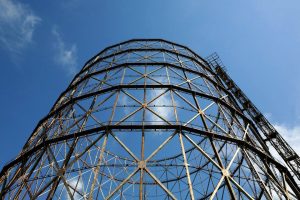
The implementation of the EU Gas Network Codes (NC) requires an important effort from many participants of the market and sound competence and specialised resources. Join us to gain comprehensive knowledge about…
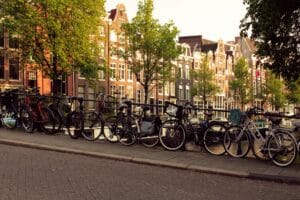
The training will focus on five areas where cities can be particularly impactful: the uptake of renewable energy, improving the energy efficiency of the building stock, digitalisation and smart grids,…

For its first edition, the Specialised course on Electricity Markets will focus on the state of EU electricity market design, and engage participants in a deep-dive discussion around the role…
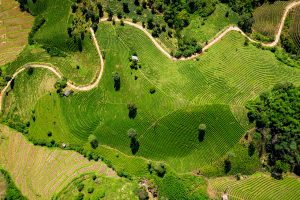
All you need to know about the power sector and power systems around the world Power system regulation is never at a rest, and this is particularly true for the…

The European Union (EU) and other major jurisdictions around the world have committed to achieve net-zero greenhouse gas emissions by 2050 or in the immediately following decades. The ‘Getting to Net…

Ensuring a Sustainable and Competitive Future for EU Agriculture The reform of the Common Agricultural Policy (CAP) for 2028–2034 comes at a moment of significant transition for European agriculture and…
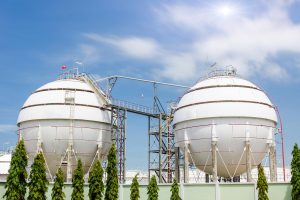
From Geopolitics to Trading: Navigate Global Gas Markets with the Experts Building on the success of our online training, Specialised Training on the Regulation of Gas Markets, we are excited…
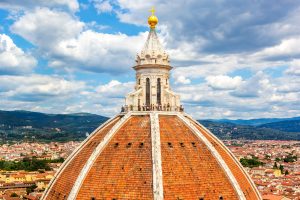
Learn the fundamental regulatory principles of the electricity and gas sectors through hands-on, real case activities and examples with instructors from national regulatory authorities from Europe and North America, the…

Participate in the most pressing debates on the regulation of transport in the European Union through hands-on activities based on real cases and examples presented by academics, regulatory authorities and…
To meet, discuss and learn in the channel that suits you best.